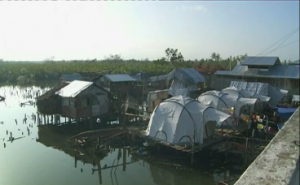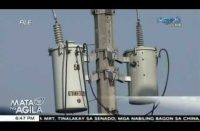
MANILA (PNA) — The Philippines has received another EUR 30 million worth of financial assistance from the European Union (EU) for the reconstruction program in areas affected by typhoon ‘Yolanda’.
In her visit to the Philippines until Thursday, EU Commissioner for International Cooperation, Humanitarian Aid and Crisis Response Kristalina Georgieva said the EUR 30-million grant is an expression of continued support of EU to the Philippine government to help the victims of the super typhoon.
Georgieva revisted Tacloban Wednesday to assess the progress of rehabilitation efforts in typhoon ‘Yolanda’-stricken areas. It was her second time to visit Tacloban after it was hit by the super typhoon last November.
“My visit to Tacloban has been a stark reminder of the devastation which hit the Philippines last November,” she said.
“Seven months on, many survivors are still struggling to recover. The need for assistance remains, but my visit has also been full of encouragement. Everywhere I turned, I saw people rebuilding their homes, replanting their fields, or reopening their businesses. While there will always be a ‘before’ and an ‘after’ Haiyan, the survivors are getting back on their feet. And this EUR 30 million grant with the Philippine Government is a confirmation that the EU will continue to support the recovery and reconstruction process,” she stressed.
In a statement of the EU Delegation to the Philippines Thursday evening, the new funding comes from the European Commission development budget.
“It is aimed at supporting post-Yolanda/Haiyan reconstruction under the program’s support to the implementation of the country’s universal health care framework through the availability of essential medicines, improved quality of health services, improved health insurance coverage and support to the post-typhoon reconstruction plan of the Philippines’s government,” the EU Delegation here further explained.
Moreover, European Commissioner for Development Andris Pielbags mentioned that it is critical for the country to combine short-term relief operations and long-term plans in helping the victims of the super typhoon.
“Since the disaster we have been active in focusing our development cooperation on activities that help the affected communities to recover and reconstruct, but also to prepare for possible future typhoons. This will help to fight poverty immediately and at the same time make people’s lives and livelihoods safer in the long term,” added Pielbags.
Aside from revisiting Yolanda-affected areas, the EU Commissioner is attending the Asia-Europe Meeting (ASEM) Conference on Disaster Risk Reduction and Management in Manila from June 4 to 6 where she is a keynote speaker.
The ASEM Conference aims to raise lessons learned from the strongest typhoon that hit Philippines last year which destroyed lives of over 6,200 people.
It also highlights new policies and principles for dealing natural disasters in the “Tacloban Declaration, which EU Delegation here said it “will contribute to the post-2015 international framework on Disaster Risk Reduction”
“Funds mobilized to assist the affected communities by the European Union, its member states and private European donations now amount to a remarkable EUR 740 million or Php 44.4 billion,” the EU Delegation to the Philippines noted. (Philippine News Agency)





